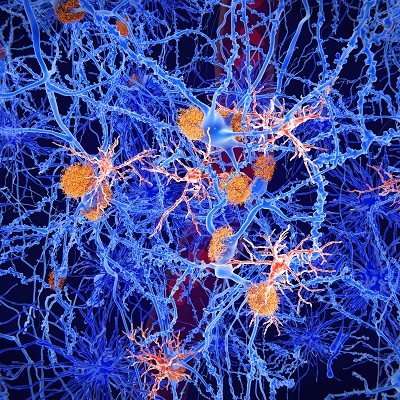January 9, 2023 -- The U.S. Food and Drug Administration (FDA) on Friday approved Leqembi (lecanemab-irmb) through its accelerated approval pathway for the treatment of Alzheimer’s disease. Leqembi is the second of a new category of medications approved for Alzheimer’s disease that target the fundamental pathophysiology of the disease.
Last year, the FDA approved aducanumab (Aduhelm), manufactured by Cambridge, MA-based Biogen, for people with mild symptoms of Alzheimer disease, such as individuals who are still independent in basic daily functioning.
These medications represent an important advancement in the ongoing fight to effectively treat Alzheimer's disease, the FDA noted.
"[Leqembi] is the latest therapy to target and affect the underlying disease process of Alzheimer's, instead of only treating the symptoms of the disease," Dr. Billy Dunn, director of the Office of Neuroscience in the FDA's Center for Drug Evaluation and Research, said in a statement.
Alzheimer's disease is an irreversible, progressive brain disorder affecting more than 6.5 million Americans that slowly destroys memory and thinking skills and, eventually, the ability to carry out simple tasks, the FDA noted. While the specific causes of Alzheimer's are not fully known, it is characterized by changes in the brain -- including amyloid beta plaques and neurofibrillary, or tau, tangles -- that result in loss of neurons and their connections. These changes affect a person's ability to remember and think.
Under its accelerated approval pathway, the FDA may approve drugs for serious conditions where there is an unmet medical need and a drug is shown to have an effect on a surrogate endpoint that is reasonably likely to predict a clinical benefit for patients.
The results of a Phase 3 randomized, controlled clinical trial to confirm Leqembi's clinical benefit have recently been reported and the FDA anticipates receiving the data soon.
Researchers evaluated Leqembi's efficacy in a double-blind, placebo-controlled study of 856 patients with Alzheimer's disease. Treatment was initiated in patients with mild cognitive impairment or mild dementia stage of disease and confirmed presence of amyloid beta pathology.
According to the FDA, patients receiving the treatment had significant dose- and time-dependent reduction of amyloid beta plaque, with patients receiving the approved dose of lecanemab (10 milligram/kilogram every two weeks) having a statistically significant reduction in brain amyloid plaque from baseline to week 79 compared to the placebo arm, which had no reduction of amyloid beta plaque.
These results support the accelerated approval of Leqembi, which is based on the observed reduction of amyloid beta plaque, a marker of Alzheimer's disease, the agency said.
Tokyo-based pharma company Eisai, which led the development and testing of the drug, is collaborating with Biogen to market Leqembi. Eisai said it will sell Leqembi for $26,500 a year.
Copyright © 2023 scienceboard.net









